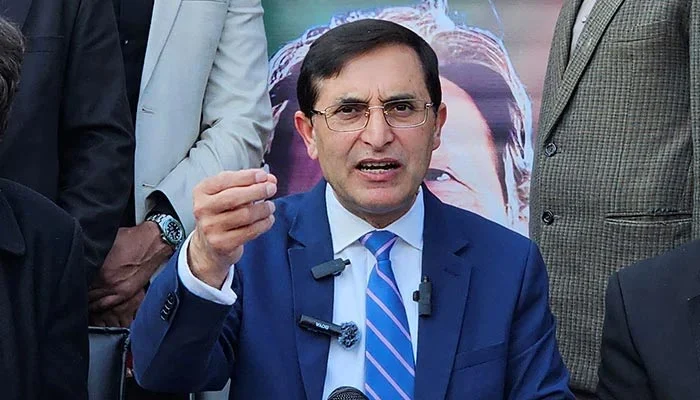Imran Khan
ISLAMABAD: Pakistan Tehreek-e-Insaf (PTI) Chairman Barrister Gohar Khan on Friday expressed optimism for legal relief for party founder Imran Khan, stating that several major cases against him will no longer fall under the jurisdiction of the National Accountability Bureau (NAB).
This anticipation comes in light of the recent Supreme Court decision to accept intra-court appeals challenging the September 15, 2023, majority judgment that struck down amendments to the National Accountability Ordinance (NAO).
Speaking to Geo News after the verdict, Gohar Khan elaborated that significant cases, such as the Toshakhana case and the Al-Qadir Trust case, are now beyond the reach of the anti-corruption body.
He pointed out that the £190 million case, which revolves around allegations of misuse of public office and assets, should be adjudicated on its merits, emphasizing that under the new amendments, decisions made by the federal cabinet are not subject to NAB scrutiny.
“The £190 million was also decided by the cabinet,” Gohar noted, “and under the new amendments, the NAB law will not apply to the decisions of the cabinet.”
The PTI chairman also mentioned that the Toshakhana case, valued between Rs30-40 million, is effectively concluded due to the unanimous Supreme Court ruling.
He argued that the £190 million case, similarly, cannot proceed further as it does not involve any personal gain, reiterating that the Supreme Court has provided clarity with its latest decision.
Earlier in the day, a five-member bench of the Supreme Court of Pakistan, headed by Chief Justice of Pakistan (CJP) Qazi Faiz Isa, announced its decision to accept the intra-court appeals filed by both federal and provincial governments against the September 15 ruling.
The court observed that Imran Khan, the PTI founder, failed to prove that the NAB amendments were unconstitutional, thus overturning the previous judgment.
The bench had reserved its verdict on June 6, 2023, after hearing multiple appeals against the earlier decision of the Supreme Court made by the bench led by then-CJP Umar Ata Bandial.
The September 15, 2023, majority judgment had invalidated certain amendments made to the National Accountability Ordinance (NAO) of 1999, which had been introduced through the National Accountability (Second Amendment) Act, 2022.
These amendments, passed during a joint session of the parliament in April 2022 under the Pakistan Democratic Movement (PDM)-led government, which came into power after Imran Khan’s ouster via a no-confidence vote, modified key sections (2, 4, 5, 6, 25, and 26) of the NAB laws.
However, a majority of nine out of the ten amendments were later declared “null and void” by the CJP Bandial-led bench following a petition by Imran Khan in June 2022.
The latest Supreme Court decision represents a pivotal moment in Pakistan’s political landscape, potentially clearing the way for Imran Khan to avoid legal entanglements related to some of the most high-profile cases pending against him.
The ruling also sets a precedent regarding the application of accountability laws, especially concerning decisions made by the government cabinet, thereby influencing future governance and legal proceedings in the country.


